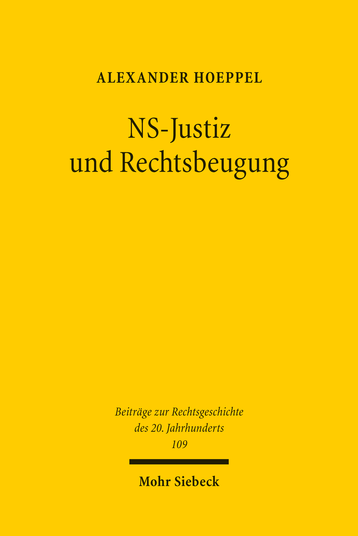(Source: Mohr Siebeck)
Mohr Siebeck has published a new
book on the criminal punishment of German judicial crime after 1945.
ABOUT THE BOOK
In the aftermath of 1945, why
were practitioners of law rarely sentenced for the crimes they committed during
the Nazi era? Was it because the judges themselves were former Nazi party
members or sympathisers? For Alexander Hoeppel, this train of thought does not
go far enough: his study reveals that German jurisprudence actually went to the
extent of adopting a legal doctrine that shielded judges and other legal
professionals from being prosecuted for crimes committed in office – and continues
to do so even to this day.
ABOUT THE AUTHOR
Alexander Hoeppel Geboren 1984; Studium der Neueren und
Neuesten Geschichte, der Politischen Wissenschaft und der Philosophie;
Wissenschaftliche Mitarbeiter am Zentralinstitut für Angewandte Ethik und
Wissenschaftskommunikation an der Friedrich-Alexander-Universität
Erlangen-Nürnberg; Projektleiter des Model United Nations Projektes der
Universität Erlangen-Nürnberg (FAUMUN); Lehrbeauftragter für Verhandlungslehre
ebenda; seit 2017 selbstständiger Verhandlungstrainer; 2018 Promotion.
The table of contents can be
found here


No comments:
Post a Comment
Note: Only a member of this blog may post a comment.